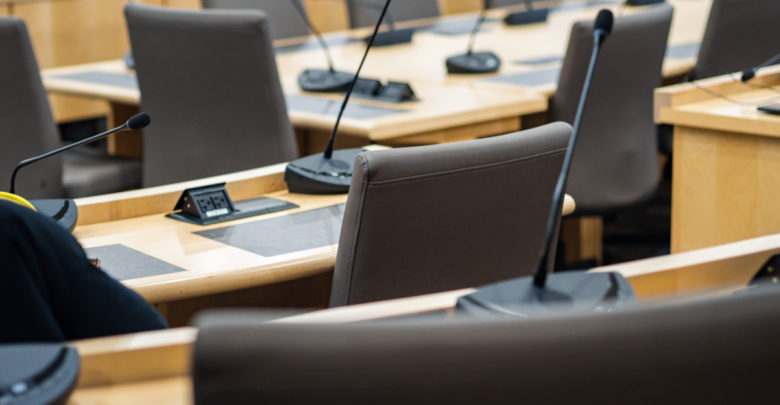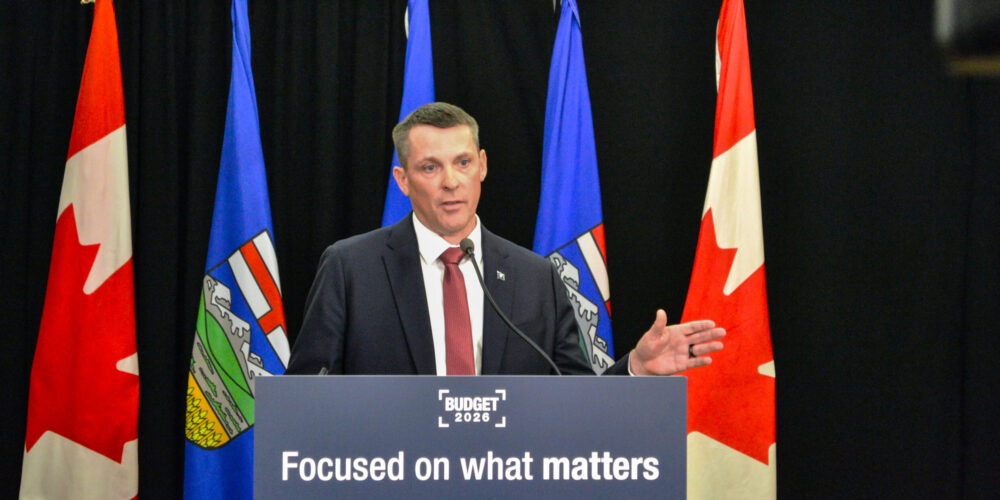GSA Council discusses election fraud allegations, motion passed to allow VPIR nomination
Council voted to have the ERC hold an emergency meeting to have the IGSA to nominate a candidate for the VPIR position, which will be voted on at the next council meeting.
 Helen Zhang
Helen ZhangOn June 23, the Graduate Students’ Association (GSA) Council met and discussed some of the recent events. Much of the discussion focused on the vice-president (Indigenous relations) appointment and subsequent rescission of the appointment.
Early in the meeting, there was disagreement over the Appeals and Complaints Board’s (ACB) ruling to suspend Nathan Lamarche, the GSA’s associate vice-president (labour).
Lamarche argued that the complaint filed against him was not valid because it did not have signature. The GSA’s policy H.POL.14.1.c states that a complaint must be signed.
Zain Patel, the speaker, said that he has no jurisdiction to determine whether the ACB’s ruling was valid. He ruled that the suspended person would be treated as a guest and had no speaking privileges.
Ahead of the April 30 GSA Council meeting, that ACB had ruled to suspend both Lamarche and then-GSA President Haseeb Arshad. Patel allowed both to speak at the April 30 GSA Council meeting. Lamarche noted this at the June meeting. The ACB later rescinded both suspensions on May 29.
A vote to overturn the speaker’s ruling failed.
Allegations of election fraud discussed
On June 3, the Elections and Referenda Committee (ERC) passed a motion to transfer the appointment decision authority for the vice-president (Indigenous relations) position to the Indigenous Graduate Students’ Association (IGSA). The IGSA then appointed Tamara Dubé.
On June 9, the ERC rescinded the motion that allowed the IGSA to appoint Dubé. Following the rescission, Dubé, Lamarche, and other graduate students raised concerns about the exclusion of Indigenous representation.
Lamarche also launched a petition “against election fraud” and an accompanying Google Drive folder of documents on June 16. The GSA sent out an email to graduate students stating that the petition contained misinformation. It also encouraged students to file a complaint about the petition to the ACB, the Office of the Dean of Students (DoS), or the Office of Safe Disclosure and Human Rights.
A discussion about the allegation of “election fraud” began with GSA President Aashish Kumar giving his remarks.
Kumar said that it’s his responsibility to ensure that the GSA is operating in accordance with its bylaws and policies.
“I found it difficult to understand how such a significant decision could move forward without adherence to established procedures,” he said, referring to the appointment of the VPIR.
Kumar said that he had reached out to the Chief Returning Officer (CRO) and ERC chair for clarification. He said he later learned that the ERC had never voted on the motion.
Kumar said that he acted based on legal advice.
He added that the language used by some escalated into personal attacks. Kumar used examples such as comments that Kumar is an enemy of labour and the GSA.
Other directly elected officers (DEO) also expressed the comments made, such as calling DEOs a “dictator,” have had a negative effect on them.
Kumar also questioned if the IGSA had advertised the VPIR appointment opportunity to the “broader Indigenous student community.”
He said the GSA “will undertake proper consultations and identify a path forward that is respectful, inclusive, and aligned with our governance frameworks most importantly.”
“We should have labelled that as a nomination and not as an appointment,” Chair of the ERC says
Elsie Osei, the chair of the ERC, spoke after Kumar. She said the GSA had advertised the VPIR position in both the general election and by-election, which Lamarche has disputed.
After the by-election failed to fill the VPIR role, the ERC met with the IGSA “because we really feel this role needs to be filled.”
Osei said “that policy is very straightforward, but the bylaw which precedes the policy is very vague.”
The policy for the VPIR position states that if the position is unfilled after a by-election, “the GSA Council will be asked to nominate a student who meets the eligibility criteria, in close consultation with the [IGSA].”
Bylaw I.BYL.5.2, however, states that after a by-election is held, an unfilled DEO position must remain vacant for one year.
Osei said the ERC thought it was very fair to have the IGSA put forward someone it believed was qualified for the role.
“I think this is where we made the mistake,” Osei said. “We did make a mistake. We should have labelled that as a nomination and not as an appointment.”
She also said that the decision was announced before the meeting minutes were approved.
Osei said that the ERC then got an email letting them know that the bylaw supersedes the policy. The ERC then rescinded the motion.
“There’s one thing that the ERC wanted to do was to pass another motion that says that we are going to let the IGSA nominate this person and bring this person to council,” Osei said. “But we were not given the opportunity to do this.”
Osei targeted in email to her faculty, says she will not step down
Osei said that “this issue shouldn’t have gone to where it is now. Because it’s a simple issue that could be easily solved by amending the bylaws, which the ERC’s already done all the time.”
Osei expressed that she and the ERC have been caught up in issues some people seem to have with the GSA.
She spoke about an email which she said Dubé sent to her colleagues at the agriculture, life, and environmental sciences (ALES) GSA. Osei is the president of the ALES GSA, which she said is separate from the ERC and has its own constitution.
According to Osei, the email said some had raised concerns to Dubé about Osei’s “dual role” as chair of the ERC and president of the ALES GSA.
The rescission of the VPIR appointment “has left Indigenous students concerned about being represented by the association with [Osei] as the president,” Osei read from the email.
Osei said the email also noted that the ALES GSA had not issued a statement in solidarity with the IGSA. Other associations have made statements, including the Sociology Graduate Students’ Association, Digital Humanities Students’ Association, and others.
Osei said that she has taken the issue to the DoS. She said she wanted to be taken out of the politics with the GSA.
“The ERC is independent, and I repeat is independent, and so putting up the petition with my name to step down — I’m not somebody to back down and I’m not going to step down because somebody is asking that I should step down from my role.”
Motion passed to have the ERC allow the IGSA to nominate someone for VPIR position
A departmental councillor later asked what council could do or vote on to work towards a resolution.
Osei said it isn’t the DEOs jurisdiction so they should stay out of it. She then said that she would like an apology sent to GSA members, then she could commit to the ERC having an emergency meeting to pass a motion allowing the IGSA to nominate someone to the VPIR role. The nomination would then go to council for the final decision.
Kumar said that the treatment Osei received was “a form of racism.” He added that he has received similar emails and the ones that have been publicly shared have been selectively chosen.
Kumar said that he stands by the legal advice he received and the bylaws, which state that DEO positions will remain dormant after a by-election. He also said the Post-Secondary Learning Act (PSLA) states that the executive positions must be elected, not appointed.
The PSLA states that members of council must be elected but does not mention executive positions within student associations.
“Would we be having this discussion if this was any other position? I have treated this position like any other, and I ask this council, would we be having this conversation if this was for the position of [vice-president] (student life)?” Kumar said.
The GSA Council passed a motion to give the ERC the mandate to hold an emergency meeting to pass a motion to allow the IGSA to nominate someone for the VPIR position. The person nominated would then come to the GSA Council for a vote on their appointment.
A motion presented by the speaker to vote on a third-party review of recent events was not discussed before the meeting ended. Due to a misunderstanding, the speaker ruled the initial vote to add the item to the agenda to have failed. Following a re-vote, the motion to add it to the agenda passed.
The discussion of the motion is expected to happen at the next GSA Council meeting.
CORRECTION: A correction was issued on June 26 at 11:45 a.m. to correct that the email from Dubé was sent to the ALES GSA not general students in the ALES faculty.
UPDATE: This article was updated on July 3 at 11:05 a.m. to reflect new information that the ACB rescinded its decision to suspend both Arshad and Lamarche.




